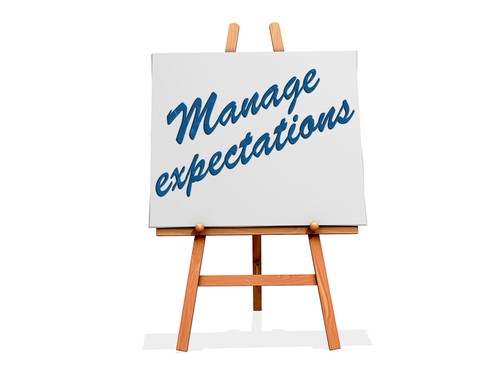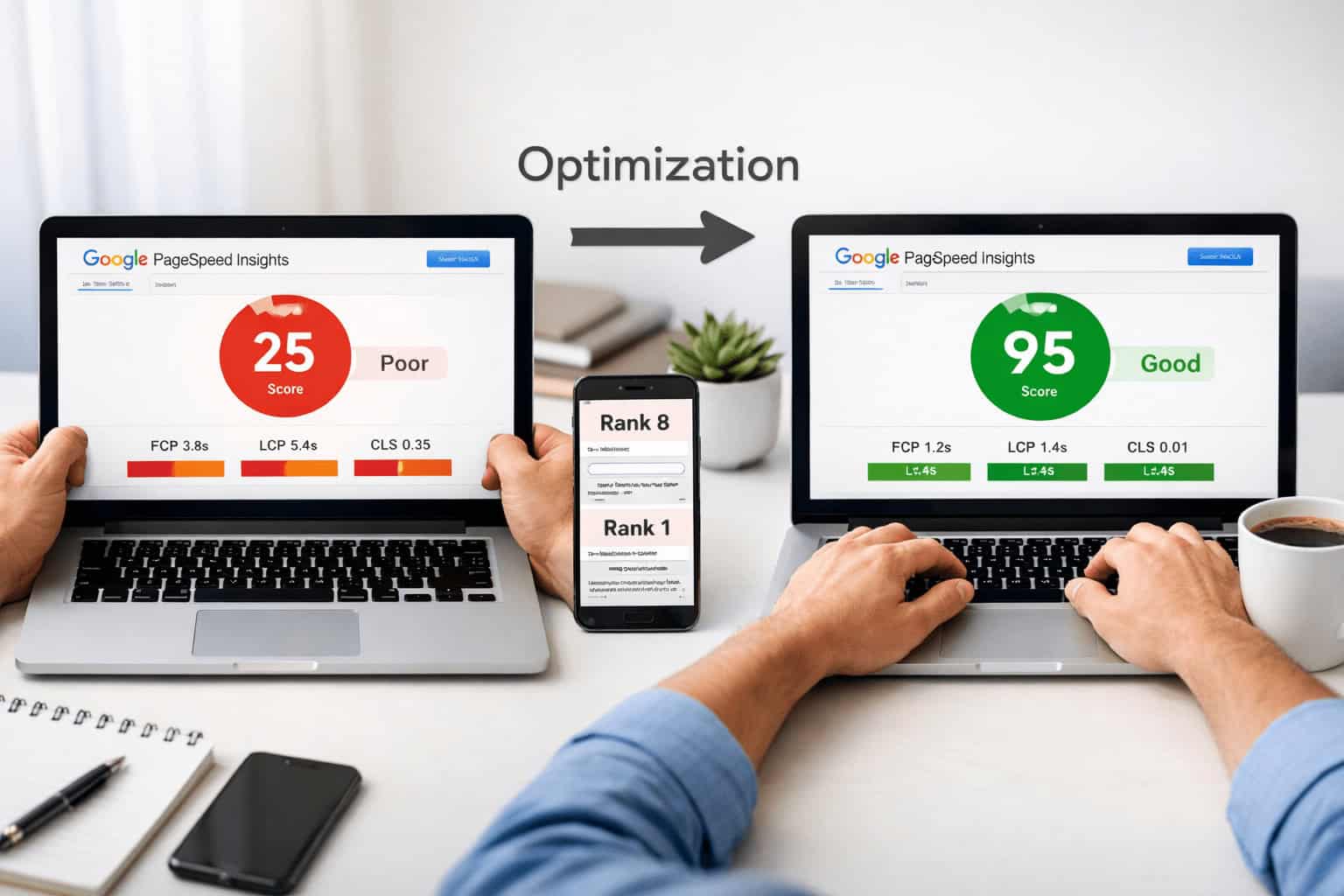How Long Does it Take to Get SEO Results?
If you’re a business owner or marketer, you might have heard about SEO and how it can help drive traffic to your website.
But you might be wondering, how long does SEO take to work?
Unfortunately, there’s no one-size-fits-all answer to this question.
The timeline for SEO results can vary depending on several factors, including your website’s current state, the competitiveness of your industry, and the SEO strategies you’re implementing.
No Can Guarantee SEO Results
Before we delve into answering this question, its important to remember that anyone who guarantees keyword ranking results is lying. Period.
No one can guarantee ranking results, especially with SEO, as there are too many variables since Google’s algorithm is constantly evolving as technology changes.
Check out Google’s official statement about SEO results:
“No one can guarantee a #1 ranking on Google.
Beware of SEOs that claim to guarantee rankings, allege a “special relationship” with Google, or advertise a “priority submit” to Google. There is no priority submit for Google. In fact, the only way to submit a site to Google directly is through our Add URL page or by submitting a Sitemap and you can do this yourself at no cost whatsoever.”
Google Search Central
Some Factors to Consider
One of the biggest factors affecting the timeline for SEO results is the current state of your website.
If your website is brand new, it might take longer to see results compared to a website that’s been around for several years. This is because search engines need time to crawl your website, index your pages and for your site to develop its domain authority.
On the other hand, if your website has been around for a while but has never had any SEO work done, you might see results more quickly because search engines have already indexed your pages.
Another factor affecting the timeline for SEO results is the competitiveness of your industry.
If you’re in a highly competitive industry with lots of established players, it might take longer to see results compared to a less competitive industry. This is because there’s more competition for the same keywords and phrases, so it can take longer to rank higher in search engine results pages (SERPs).
Key Takeaways
- The timeline for SEO results can vary depending on several factors, including your website’s current state, the competitiveness of your industry, and the SEO strategies you’re implementing.
- If your website is brand new, it might take longer to see results compared to a website that’s been around for several years.
- The competitiveness of your industry can also affect the timeline for SEO results, with highly competitive industries taking longer to see results compared to less competitive industries.
Factors Affecting Your SEO Results Timeline
When it comes to SEO, the timeline for seeing results can vary greatly depending on a number of factors. Here are some factors that can impact the timeline for your SEO campaign:
On-page Optimization
On-page optimization refers to the changes you can make directly on your website to improve your search engine rankings. This includes things like optimizing your title tags, meta descriptions, header tags, and content.
On-page optimization can have a significant impact on your SEO timeline because it is something you have control over and can implement relatively quickly.
Off-page Optimization
Off-page optimization refers to the actions you take outside of your website to improve your search engine rankings.
This includes things like citation building, link building, social media marketing, and guest blogging.
Off-page optimization can be more time-consuming than on-page optimization because it often involves reaching out to other websites and building relationships.

Content Quality
Content quality is another important factor that can impact your SEO timeline.
High-quality content that is helpful, relevant, informative, and engaging can help improve your search engine rankings and drive more traffic to your website.
On the other hand, low-quality content that is thin, poorly written, or irrelevant can hurt your SEO efforts and make it more difficult to achieve your goals.
Other factors that can impact your SEO timeline include the level of competition in your industry, the keywords you are targeting, the strategies you are using, and your overall SEO experience.
It’s important to keep in mind that SEO is a long-term process that requires patience, persistence, and a commitment to best practices.
By focusing on on-page and off-page optimization, creating high-quality content, and staying up-to-date with the latest SEO strategies and best practices, you can improve your search engine rankings, drive more organic traffic to your website, and achieve long-term success with your SEO campaign.
Expected Timelines for SEO Results
When it comes to SEO, it’s important to have realistic expectations about how long it will take to see results. There is no one-size-fits-all answer to this question, as the timeline for seeing results can vary depending on a number of different factors.
Short-term Expectations
In the short term, you can expect to see some changes in your rankings and traffic within the first few weeks or months of implementing your SEO strategy. This may include improvements in your keyword rankings, increased traffic to your site, and more engagement from your users.

However, it’s important to remember that these changes may be relatively small, and it may take some time before you see any significant improvements in your rankings or traffic.
Medium-term Expectations
In the medium term, you can expect to see more significant improvements in your rankings and traffic. This may include improvements in your rankings for specific keywords, increased organic traffic to your site, and more engagement from your users.
In order to achieve these improvements, you will need to continue to build high-quality content, optimize your pages for search engines, and work on building high-quality backlinks to your site.
Long-term Expectations
In the long term, you can expect to see even more significant improvements in your rankings and traffic. This may include higher rankings for competitive keywords, increased organic traffic to your site, and more conversions and sales.
However, it’s important to remember that these improvements may take several months or even years to achieve, especially if you are working in a highly competitive industry or niche.
Overall, it’s important to have realistic expectations when it comes to SEO. While you may see some short-term improvements in your rankings and traffic, it can take time to see significant improvements in your search engine rankings and traffic.
By focusing on building high-quality content, optimizing your pages for search engines, and building high-quality backlinks to your site, you can improve your chances of success over the long term.
Strategies to Speed Up SEO Results
If you want to see results from your SEO campaign faster, there are several strategies you can implement to speed things up.
Here are some of the most effective ones:
Keyword Research and Optimization
Keyword research is the foundation of any successful SEO campaign.
By finding the right keywords to target, you can increase your chances of ranking higher in the search results. Use tools like Google Keyword Planner, Ahrefs, or SEMrush to find relevant keywords with high search volume and low competition.
Once you’ve identified your target keywords, optimize your website and content around them. Use the keywords in your page titles, meta descriptions, headers, and body text. But don’t overdo it – keyword stuffing can hurt your rankings and user experience.
Technical SEO
‘Technical SEO’ refers to the optimization of your website’s technical aspects, such as site speed, mobile responsiveness, and crawlability.
A well-optimized website can improve your user experience, increase your crawl rate, and boost your rankings.
To improve your site speed, optimize your images, use a caching plugin, and minimize your CSS and JavaScript files.
To make your website mobile-friendly, use a responsive design and test your website on different devices. And to improve your crawlability, fix broken links, use a sitemap, and optimize your robots.txt file.
Backlink Building
Backlinks are one of the most important ranking factors for search engines. By building high-quality backlinks from authoritative websites, you can improve your website’s authority and visibility.
To build backlinks, create high-quality content that people want to link to, reach out to other websites in your industry, and use guest blogging to get your content in front of new audiences. But be careful not to engage in black hat tactics like buying links or participating in link schemes, as these can hurt your rankings and reputation.
Content Creation and Optimization
Content is king in SEO. By creating high-quality, relevant, and engaging content, you can attract more traffic, generate more leads, and increase your conversions.
To create great content, focus on your target audience and their needs. Use a mix of text, images, and videos to make your content more engaging. And optimize your content for your target keywords, but also make sure it’s readable and valuable for your users.
Conclusion
Implementing these SEO strategies can speed up your results and improve your rankings, traffic, and conversions. But remember, SEO is a long-term game, and it takes time and effort to see real progress. Keep monitoring your progress, adjusting your strategies, and staying up-to-date with the latest SEO trends and best practices.
If you’d like to explore working with an experienced team of SEO professionals who can help you achieve impactful SEO results, give the experts at LocalBizGuru a call or contact us today!
Frequently Asked Questions
How long for backlinks to take effect?
Backlinks can take anywhere from a few days to several months to take effect. It depends on various factors such as the quality of the backlinks, the relevance of the linking site, and the frequency of indexing by search engines. Generally, it takes around 2-4 weeks for search engines to index a new backlink and for it to start having a positive impact on your website’s search engine rankings.
Why does SEO take so long?
SEO takes time because it involves optimizing various aspects of your website to make it more search engine-friendly. This includes creating high-quality content, optimizing on-page elements, building backlinks, and more. These processes take time to implement and for search engines to recognize and reward with higher rankings. Additionally, SEO is an ongoing process that requires continuous effort to maintain and improve your rankings.
How long does it take to optimize a website?
Optimizing a website can take anywhere from a few weeks to several months, depending on the size of the website and the scope of the optimization. It involves analyzing and optimizing various on-page elements such as title tags, meta descriptions, header tags, content, and more. It also involves improving the website’s technical structure, such as improving page speed, mobile-friendliness, and more.
How long does local SEO take?
Local SEO can take anywhere from a few weeks to several months, depending on the competition in your local market and the scope of the optimization. It involves optimizing your website and online presence to rank higher in local search results, such as Google Maps and local directories. This includes creating and optimizing your Google Business Profile (GBP), building local citations, and getting positive reviews from customers.
How long does it take to learn SEO?
Learning SEO can take anywhere from a few weeks to several months, depending on your level of commitment and the resources available to you. It involves understanding the principles of search engine optimization, learning how to optimize on-page elements, building backlinks, and more. There are many resources available online, such as blogs, videos, and courses, that can help you learn SEO.
How long does it take to get organic traffic?
Getting organic traffic can take anywhere from a few weeks to several months, depending on the competitiveness of your niche and the quality of your SEO efforts.
It involves creating high-quality content, optimizing on-page elements, building backlinks, and more.
The more effort you put into your SEO, the faster you can expect to see results. However, it’s important to remember that SEO is an ongoing process that requires continuous effort to maintain and improve your rankings.



